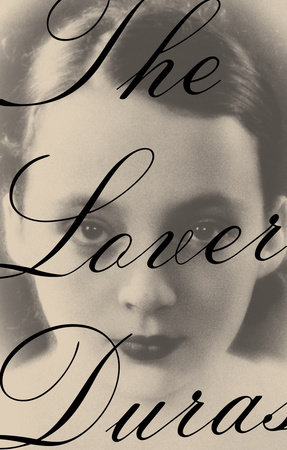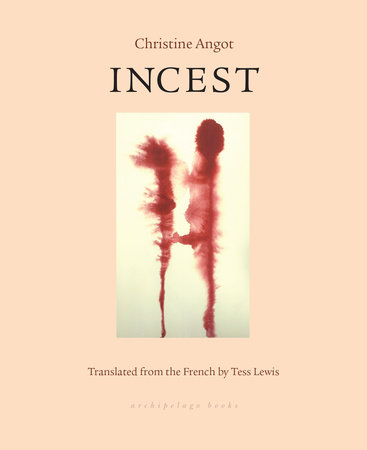I always knew there would be an explosive family secret at the heart of my novel, just as there was in my own life—my father hid a second family from my mother and me, and its discovery forever changed our relationship. It’s no surprise, then, that I’ve often recognized myself in tales of secrecy and betrayal, especially those that take place within a family.
In The Margot Affair, 17-year-old Margot Louve is the hidden daughter of an affair between a politician and a stage actress. It is a secret she is forced to guard fiercely, and only a small inner circle knows that her father is married to another woman with whom he has two sons. One hot summer afternoon, a chance sighting of her father’s wife crystallizes Margot’s position as the other child, on the wrong side of his double life—and in that moment she feels an intense desire to claim her own legitimacy. What follows is the aftermath of Margot telling the truth about her father. I wanted to explore the consequences of setting a secret loose.
While writing my novel, I turned to books about French families, though soon I noticed a common thread in the ones I’d chosen: Secrets were withheld and revealed. It’s a cliché to say that all families have secrets, and yet I was fascinated by these double lives and intricate lies, the silences that implied something beneath. Most of all, I loved seeing what happened when those secrets inevitably surfaced. Even if the release was cathartic, it could come at a great cost. Here are the seven books that most nurtured my curiosity for the hidden.

The End of Eddy by Édouard Louis, translated by Michael Lucey
I tore through this book in one sitting on a train ride from Paris to Brittany. Édouard Louis writes about being raised in a small village in post-industrial northern France. His family is poor and lives in a culture of male violence, alcoholism, and repeated humiliation. Eddy knows from a young age that he is gay. For years he seeks to hide his desire, pretending to be a “tough guy.” It is a childhood shrouded in shame. In private, he’s violently beaten by his classmates for being different. His first sexual encounters take place in a shed with his cousins. In an unspoken pact of sorts, they are never discussed, not even when his mother catches them mid-act. He finally flees to a boarding school in a nearby city, then Paris. The novel is a radical coming-of-age with a literal shedding of his name: Eddy Belleguelle becomes Édouard Louis. Even so, for a long time he conceals where he comes from, the past a shameful secret.

The Lover by Marguerite Duras
Marguerite Duras was 70 when she wrote The Lover, an autobiographical novel set in prewar Indochina that recounts an affair between a 15-year-old French girl and a Chinese man. Through fragments that weave in and out of chronology, we see the young girl beaten by her mother and older brother. We see her step into the private space of a black limousine to meet her lover. She refers to him as a lover, to the relationship as an affair. Her mother would kill her if she ever found out. But the mother suspects it or perhaps already knows. Regardless, the truth remains a fragile secret until the end. In one scene, mother and daughter skirt around its edges, perhaps knowing that the affair can remain beneath the surface as long as the daughter stays silent. The experience of reading The Lover reminds me of the mother and daughter in that scene, circling around a truth that feels both vivid and elusive.

I’m Supposed to Protect You from All This by Nadja Spiegelman
At the heart of this remarkable memoir is the brave act of imagining one’s mother as a girl, long before she became the woman who birthed and raised her. Nadja Spiegelman, who is half French and writes in English, probes into her mother’s and maternal grandmother’s pasts. For most of her childhood, Spiegelman couldn’t imagine her mother’s interior life: “The past was always there on her body, but I couldn’t see it.” What was inside, beyond the scars? Where did those wounds come from? As we enter the intimacy of her mother’s memories, secrets fall away, and we discover three generations of French women who shaped each other. Silences are replaced with vibrant recollections. But memory is subjective and unpredictable, so the remembrances of grandmother, mother, and daughter often collide. We never quite know who to believe. And yet, I ardently believed in the mother and daughter as a unit able to withstand just about anything.

Nothing Holds Back the Night by Delphine de Vigan
This powerful memoir opens with a suicide: the author’s mother has taken her life at age 61. So begins the exploration of a mother’s life, recreated from hours of interviews with family members. Like Nadja Spiegelman, de Vigan endeavors to imagine her mother as a young girl. We find again the push and pull of maternal love and neglect, the hope to capture the mystery of a woman who was plagued by manic episodes. But how to form a complete portrait when the mother is no longer there to tell her story? The brilliance is in de Vigan’s boundless empathy as she searches for the origin of her mother’s suffering. The revelations are devastating—a rape within the family, a hidden illness. Though what brought me to tears was the mother’s love, hiding in plain sight, always there.

Adèle by Leïla Slimani
Adèle, the protagonist of Slimani’s first novel, leads a double life. She is married to a doctor and together they have a three-year-old son. Most of her energy goes into concealing her sex addiction. She repeatedly lies to her husband as she seeks out increasingly dangerous and degrading sexual encounters. Terrified of being found out, Adèle meticulously organizes her life to hide her compulsions. Slimani is a master at writing about the daily travails of domesticity with precision and fierce directness. There is a slight moment of reprieve when Adèle hopes that motherhood will act as a remedy, but as a reader, we know it is only a matter of time before the finely tuned tale gives way, and even as Adèle barrels towards that precipice, we cannot look away. Not even the reader is spared.

Bonjour Tristesse by Françoise Sagan
Published in 1954, this slim novel takes place at the height of summer. 17-year-old Cécile and her widowed father have rented a grandiose villa on the Côte d’Azur. Cécile’s father has brought along his latest conquest—the young Elsa—whom she sees as innocuous. However, the sudden arrival of her late mother’s friend, Anne, threatens the equilibrium. Anne is beautiful, elegant, and older than Elsa, and before long, she and the father fall in love. Eager to regain her independence and her father’s undivided attention, Cécile constructs an elaborate plan. It is a web of lies and secrets with Cécile at the center, though our young protagonist fails to anticipate how her duplicitous game might harm those involved when the truth is laid to bare. Whenever I read Sagan, I’m stunned by the precociousness and energy of her writing—it lights up even the darkest moments of the book and leaves me wholly unprepared for a tragic outcome.

Incest by Christine Angot, translated by Tess Lewis
I first encountered this feverish, maddening book in my early twenties. From the beginning Angot subverts our expectations by focusing on an obsessive relationship with a woman. We expect her to write about an incestuous relationship, but it seems to be an afterthought, withheld until the last section of the book. (Most readers will know that Angot was born out of wedlock; her father was married to another woman, with whom he had two children.) When mentions of the incest appear, a sentence here and there, they rattle us. When the narrator declares: “I wanted to be a writer, I wanted a powerful start, I seduced my father,” we are grasping for explanations. When she finally writes about the incest, we are torn up, caught in that tense space of bearing witness to her past and wanting to un-see its violence. Not only does her father initiate sexual relations with his daughter, he keeps her very existence hidden. Even when she’s a grown woman, he refuses to publicly acknowledge her. No one in the village knows about his illegitimate child. But with this book, Angot flips the tables: “He is my incestuous father,” she says. “I acknowledge him.”
The post 7 French Books About Family Secrets appeared first on Electric Literature.
Source : 7 French Books About Family Secrets









